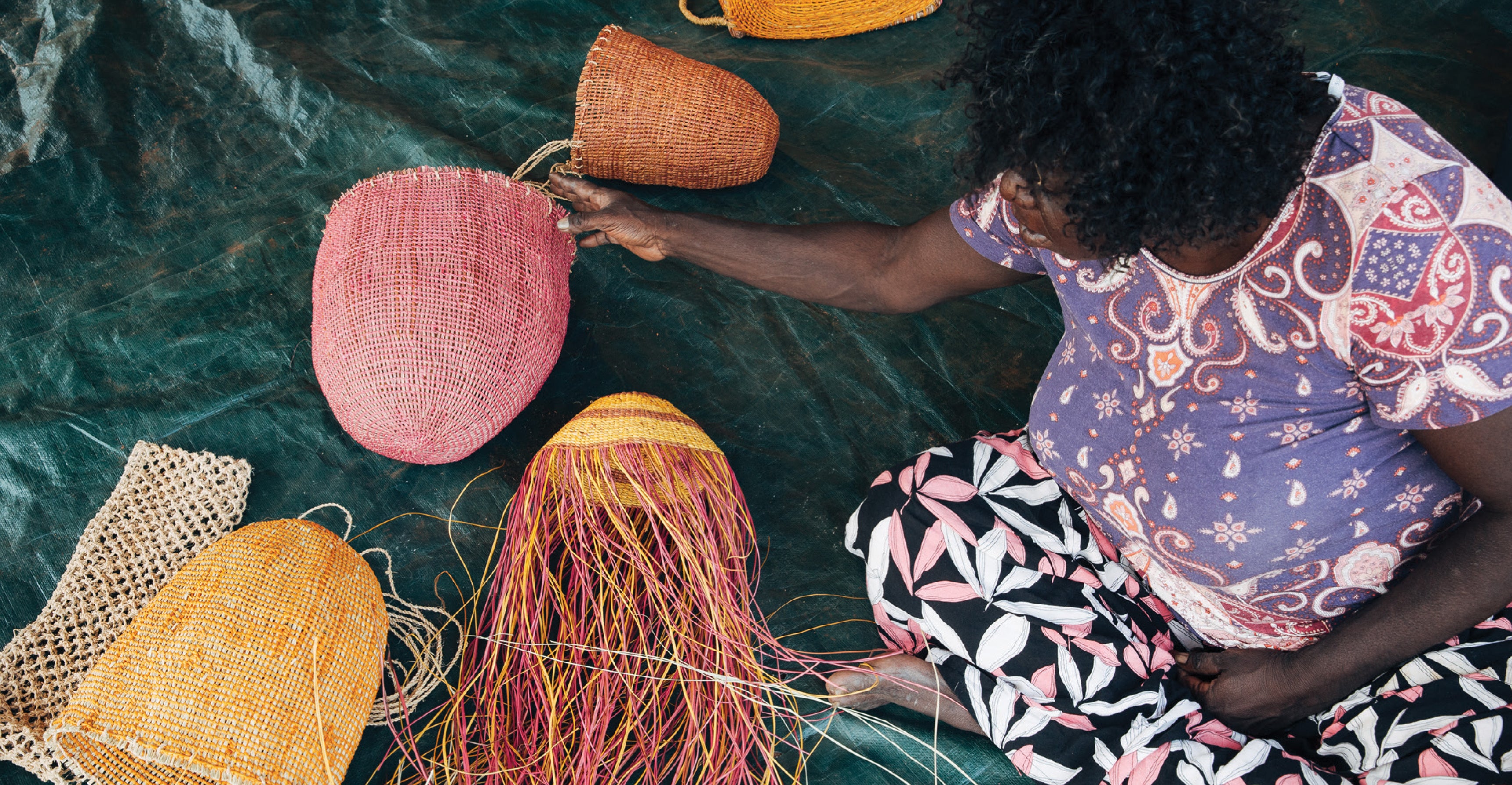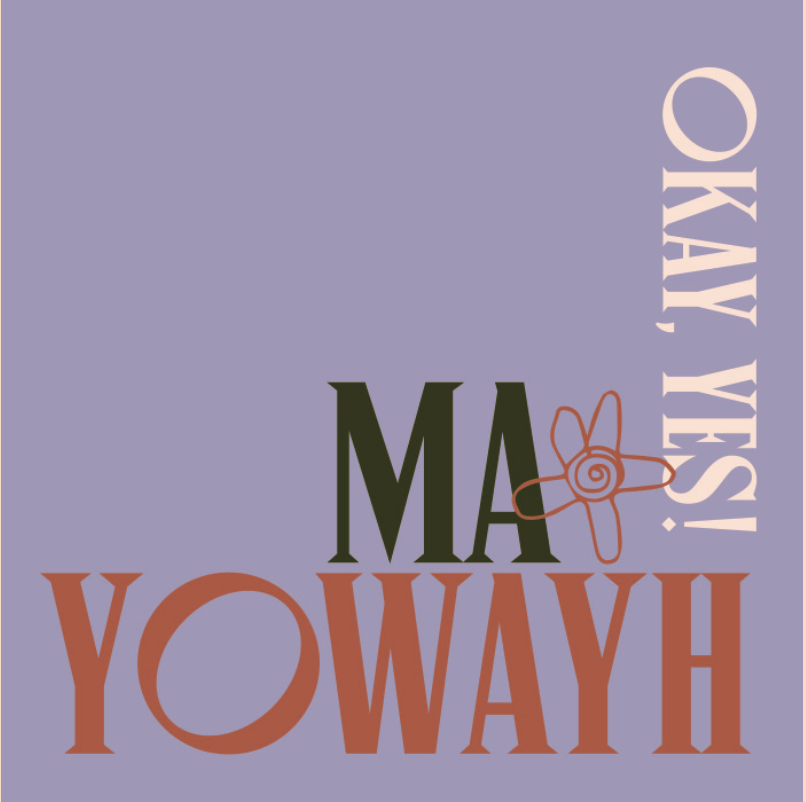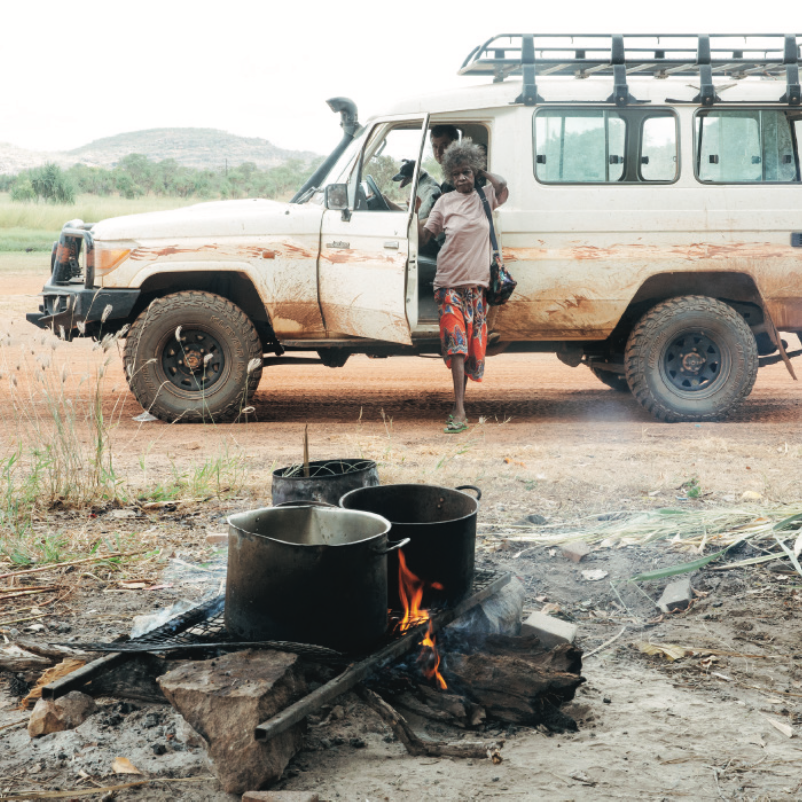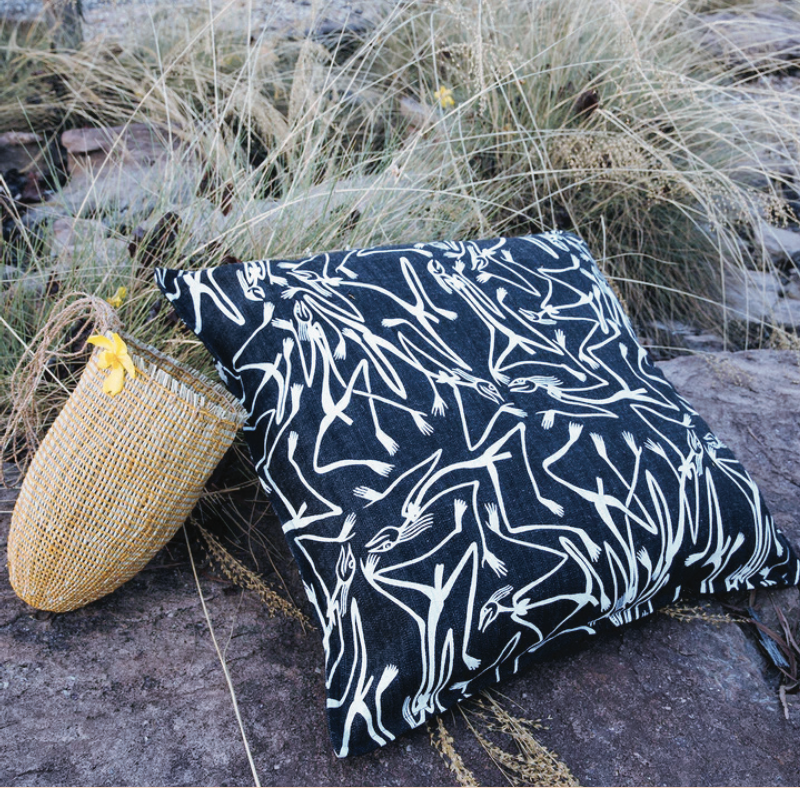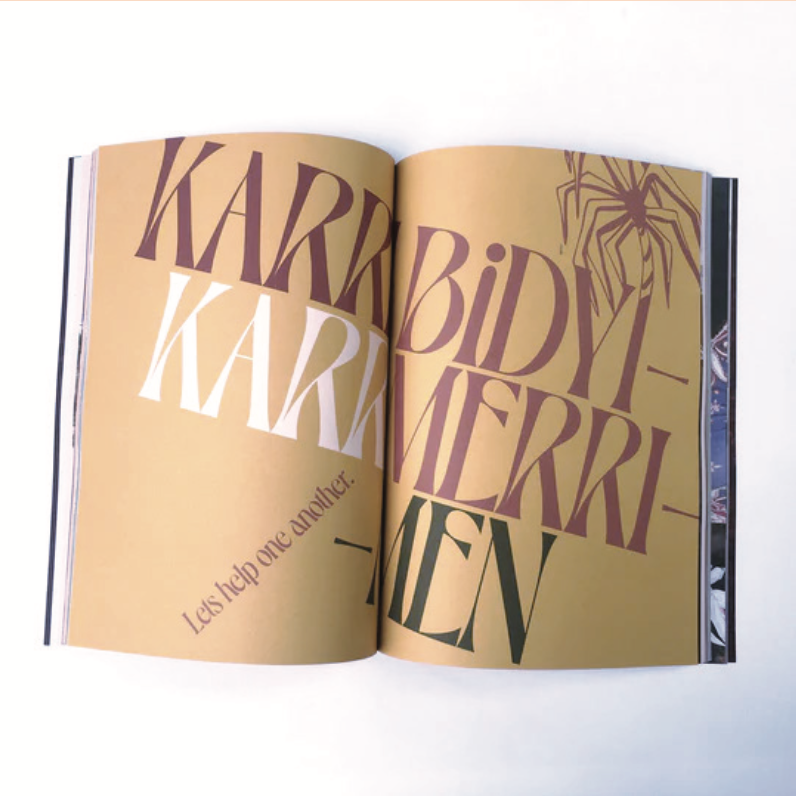The site depicted in this painting is Puyurru, west of Yuendumu. In the usually dry creek beds are ‘mulju’ (soakages), or naturally occurring wells. The 'kirda' (owners) for this site are Nangala/Nampijinpa women and Jangala/Jampijinpa men. Two Jangala men, rainmakers, sang the rain, unleashing a giant storm.
The storm travelled across the country from the east to the west, initially travelling with a ‘pamapardu Jukurrpa’ (termite Dreaming) from Warntungurru to Warlura, a waterhole 8 miles east of Yuendumu. At Warlura, a gecko called Yumariyumari blew the storm on to Lapurrukurra and Wilpiri. Bolts of lightning shot out at Wirnpa (also called Mardinymardinypa) and at Kanaralji. At this point the Dreaming track also includes the ‘kurdukurdu mangkurdu Jukurrpa’ (children of the clouds Dreaming). The water Dreaming built hills at Ngamangama using baby clouds and also stuck long pointy clouds into the ground at Jukajuka, where they can still be seen today as rock formations.
The termite Dreaming eventually continued west to Nyirripi, a community approximately 160 km west of Yuendumu. The water Dreaming then travelled from the south over Mikanji, a watercourse with soakages northwest of Yuendumu. At Mikanji, the storm was picked up by a ‘kirrkarlanji’ (brown falcon [Falco berigora]) and taken farther north. At Puyurru, the falcon dug up a giant ‘warnayarra’ (rainbow serpent). The serpent carried water with it to create another large lake, Jillyiumpa, close to an outstation in this country. The ‘kirda’ (owners) of this story are Jangala men and Nangala women. After stopping at Puyurru, the water Dreaming travelled on through other locations including Yalyarilalku, Mikilyparnta, Katalpi, Lungkardajarra, Jirawarnpa, Kamira, Yurrunjuku, and Jikaya before moving on into Gurindji country to the north.
In contemporary Warlpiri paintings, traditional iconography is used to represent the ‘Jukurrpa’ (Dreaming). Short dashes are o en used to represent ‘mangkurdu’ (cumulus & stratocumulus clouds), and longer, flowing lines represent ‘ngawarra’ (flood waters). Small circles are used to depict ‘mulju’ (soakages) and river bed.
Shanna Napanangka Williams
Shanna Napanangka Williams was born in 1988 in Alice Springs Hospital, the closest hospital to Yuendumu, a remote Aboriginal community located 290 km north-west of Alice Springs in the NT of Australia. Shanna is the great grand-daughter of Paddy Japaljarri Sims (Dec) and Bessie Nakamarra Sims (Dec). Shanna has been painting with Warlukurlangu Artists Aboriginal Corporation, since 2002, when she was 14 years of age. She began painting during the school holidays when the art centre ran cultural maintenance programs for the school children. Shanna paints her father’s Jukurrpa stories, Dreamings which relate directly to her land, its features and the plants and animals that inhabit it. These stories were passed down to her by her father and her great grandfather. Shanna attended the local Yuendumu School. She is now a full-time mum looking after her two children Ivan and Diona.
 Our journey
Our journey

